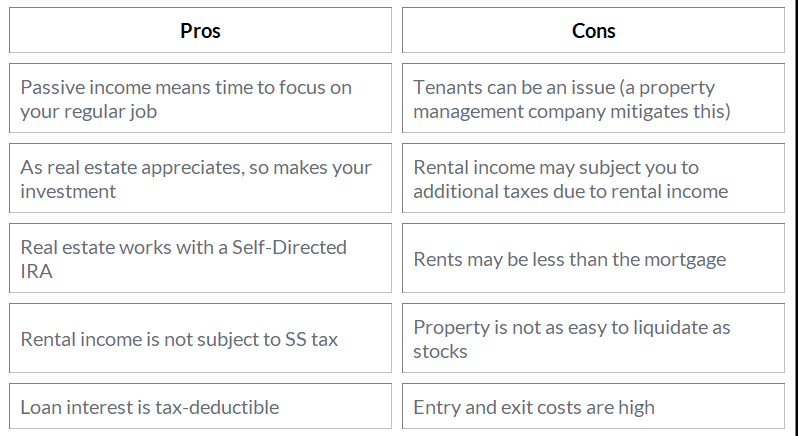Roth Conversions to a Solo 401K to Offset Losses
Are you a self-employed real estate investor? If so, the solo 401K may be the best option for you. The solo 401K is an IRS-approved retirement plan that enables you to minimize your tax burden. Read on to learn more about how this tax strategy works and how you can offset losses with a solo 401K and Roth conversions.
What is a Solo 401k?
As mentioned, a solo 401K is an IRS-approved retirement plan. Also, the solo 401K is ideal for self-employed business owners or business owners with one other employee, usually their spouse.
This retirement plan allows contributions of up to $60,000 each year.
If you want to learn more about the solo 401K and its many benefits, read our informative guide: Solo 401K vs. Self-Directed IRA: Which Is Better For You?
What is a Roth IRA conversion?
A conversion is a taxable movement of cash, real estate, or other assets from a Roth IRA to a Solo 401K.
When you convert from a Roth IRA to a solo 401K, there's a tradeoff. You will face a tax bill, possibly a big one, due to the conversion. If you decide to convert a portion of your Roth IRA conversions into a Solo 401K, you will pay taxes on the money you convert.
However, you'll be able to secure tax-free withdrawals as well as several other benefits, including no required minimum distributions, in the future. With proper tax planning, you may even be able to mitigate the tax bill from the conversion.
All in all, you pay taxes on the money you convert to secure tax-free withdrawals and several other benefits. One of the most significant benefits is that you will no longer have the required minimum distributions in the future.
Why are Roth conversions a popular tax strategy?
Roth conversions remain popular as many taxpayers fear that tax rates will only increase in the next few years. A Roth conversion enables you to convert now at lower tax rates, let your account grow, and let you make a tax-free withdrawal over the life of your retirement!
How is a solo 401K different from a traditional IRA or 401(k)?
Remember, if you have a traditional IRA or 401K, that money grows tax-deferred, but you pay tax on the distributions as you withdraw the funds at retirement.
The tax rate might be much higher when you retire. That means you would potentially lose more money to taxes each time you make a withdrawal.
Another thing to remember is that once you reach age 72, you must withdraw a certain amount of money each year, or the "required minimum distribution."
How can I offset losses with a Roth conversion?
One of the ways to mitigate the tax impact of the conversion is for a business owner to offset net operating losses (NOL). The income generated by a Roth conversion may offset the NOL, and the business owner may not incur any additional tax liability. Additionally, there is no limit to the amount of income that an NOL can offset.
What is a net operating loss?
Generally, a net operating loss (NOL) is an excess of deductions over income from the operation of a business. These deductions are expenses from the operation of a business.
For individuals, an NOL may also be attributable to casualty losses. A casualty loss occurs from the destruction or loss of your (taxpayer's) personal property. The casualty loss is a single, sudden event.
For instances of theft, you will need to prove that someone stole the property.
Example of how you would offset losses with a solo 401k
First, a disclaimer: these calculations can be complex, and investors should consult with a tax professional or financial advisor to decide the best strategy for them.
- Imagine you're a sole proprietor who has a traditional IRA for self-employed individuals worth $300,000.
- Your business experienced losses totaling $170,000 this year.
- Your spouse's annual income was $75,000.
- Both of you also reported $5,000 in income from interest and dividends, bringing your total income to $80,000.
The following example illustrates the calculation.
INCOME
Spouse’s wages
$75,000
Interest and dividends
5,000
Total income
80,000
DEDUCTIONS
Net business losses
(itemized deduction and personal exemptions not allowed in net operating calculation)
(170,000)
NOL for tax year
(90,000)
Income from Roth IRA conversion
90,000
Net taxable income
0
This example is for illustrative purposes only.
In this case, the couple may decide to convert $90,000 from the IRA. Then they can use that $90,000 to offset the loss and possibly avoid generating any tax consequences.
If you want to learn more about how the solo 401K lowers your tax burden, read Self-Directed Solo 401K: How to Avoid Tax Penalties.
Here's The Bottom Line
The solo 401K is probably right for you if you are self-employed. You need to decide if it's the right time for you to convert money in your Roth IRA to a Solo 401K.
If you do decide on a conversion, remember the tax bill upfront secures your freedom from "required minimum distributions." Also, you may be able to offset your losses with a solo 401K.
To learn more about this powerful tax savings strategy and others that you can use to keep more of your earnings, book a tax consultation by taking our tax quiz. The information you provide will enable us to have a productive discussion the first time that we speak.



 Terms to Know: Solo 401(k)/IRA, Disqualified Person, Prohibited Transaction
Terms to Know: Solo 401(k)/IRA, Disqualified Person, Prohibited Transaction Types of Prohibited Transactions
Types of Prohibited Transactions What are Some of the Most Common Prohibited Transactions?
What are Some of the Most Common Prohibited Transactions?
 What is the Best Business Structure for a Real Estate Agent?
What is the Best Business Structure for a Real Estate Agent? Protect Your Assets With Royal Legal Solutions
Protect Your Assets With Royal Legal Solutions How does a living trust work for the real estate investor?
How does a living trust work for the real estate investor? How does a will fit into REI estate planning?
How does a will fit into REI estate planning?
 Why Real Estate Investors Love S Corps
Why Real Estate Investors Love S Corps What Is An S Corp Distribution?
What Is An S Corp Distribution? What Exactly Do Property Transfer Services Do?
What Exactly Do Property Transfer Services Do? Can’t I Just Do This Myself?
Can’t I Just Do This Myself?



 What Can You Hold in a Self Directed IRA Business Trust?
What Can You Hold in a Self Directed IRA Business Trust?
 Bitcoin Basics
Bitcoin Basics Start Investing Today
Start Investing Today